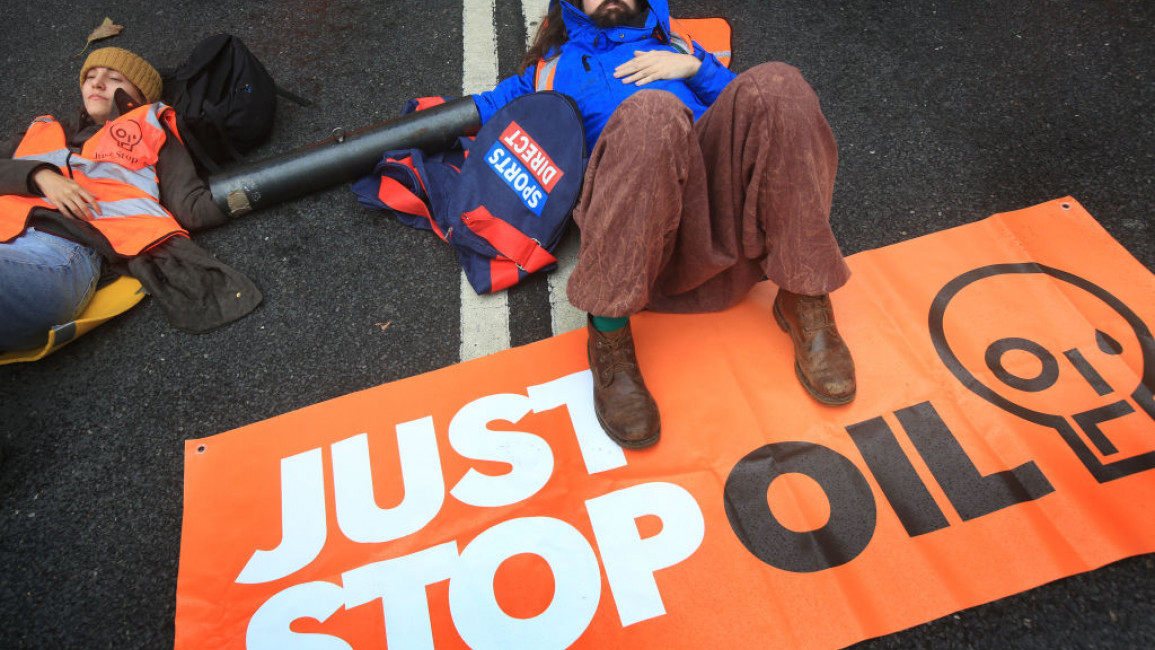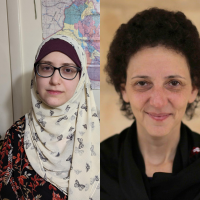Criminalising resistance: We can’t stop climate change without ending capitalism
The world as we know it is coming to an end. Except the end is arriving not at the speed of a comet hurtling through space, but at the rate it takes for global warming to rise 1.5 degrees Celsius above pre-industrial levels.
Perhaps the worst part is that this outcome is not inevitable. Immediate and meaningful action to stop carbon emissions and, slow the increase in global temperatures, could lead to a sustainable way out of the current climate emergency.
But instead of finding the desperate interventions we need to – quite literally – save the planet, there continues to be minimal effort from both governments and big business. At COP27, the global climate conference which wraps up this week, African activists struggled to be included despite their nations being impacted disproportionately by climate change, and despite the conference being hosted on their continent.
''But to anyone who’s paying attention, it seems obvious that urgent action is the only way forward. Complacency is no longer an option. We are at the point where protest has become maybe the single most important recourse for ordinary people seeking climate justice. But disruptive protest, which really succeeds in attracting attention and generating publicity, is now being referred to as ‘criminal’.''
In the UK, still-new Prime Minister Rishi Sunak has a less than impressive record on the environment. He appears to be in favour of banning wind farms and approving further fossil fuel exploration; he also previously voted against climate-friendly policies.
This comes against the backdrop of an increasing criminalisation of protest, particularly where it might affect economic activity. Last week, the Assistant Commissioner of the Met Police went on the BBC and said about an action by Just Stop Oil: “This isn’t protest, this is crime”. Moreover, even journalists are no longer safe from the police’s overreach.
But to anyone who’s paying attention, it seems obvious that urgent action is the only way forward. Complacency is no longer an option. We are at the point where protest has become maybe the single most important recourse for ordinary people seeking climate justice. But disruptive protest, which really succeeds in attracting attention and generating publicity, is now being referred to as ‘criminal’.
Protesters from groups such as Just Stop Oil, Extinction Rebellion, and Insulate Britain have repeatedly been arrested and portrayed in the media as antisocial miscreants. They’ve been treated like terrorists and sentenced to prison.
In reality, much of the frustration regarding climate change comes from the fact that the power to take effective, meaningful action is concentrated in the hands of a small group of people. Multi-billion dollar corporations, and the governments they keep in power, are working in concert to maintain a status quo that profits them despite the devastation it will cause.
As electricity, heat, transport, and manufacturing make up over half of global greenhouse emissions, ending the use of carbon-emitting fossil fuels must be an urgent priority. But when fossil fuel lobbyists attend a global climate conference in record numbers, what message does that send?
Corporations have invested in shifting the onus of climate change onto individual consumption. Much of the popular narrative around tackling climate change has been constructed around individual responsibility. People are encouraged to use less and ‘go green’. To not rinse dishes before loading the dishwasher but wash out their yogurt pots before recycling them.
Poor nations in the Global South are told they’re having too many babies, and the eugenicist notion of population control is being pushed as necessary in order to save the planet. That’s despite the fact that the Global South accounts for a fraction of carbon emissions and yet bears the brunt of climate-related devastation.
While climate change doesn’t affect us all equally, it does affect us all. It’s therefore essential to accept and acknowledge that disruptive climate protesters or poor non-white populations are not the enemy. The real enemy is white supremacist capitalism.
This is why the fights for climate justice and racial justice are intrinsically linked to each other, and in turn to the fight for class justice and against capitalism. White supremacist capitalism functions by pitting working class populations against one another. It thrives on promoting an individualistic worldview and placing the pursuit of self-interest above human compassion, equity, and community.
Scientists have been ringing alarm bells about global warming and climate change since at least the 1990s. We now face certain chaos if we fail to significantly curb global emissions within 9 years. Yet the capitalist pursuit of profit, at the expense of the wellbeing of the planet and 99% of its human population, will continue to block climate action.
Solidarity, therefore, is crucial. On the one hand, white climate activists taking direct action against climate change are showing good allyship by placing themselves in harm’s way. Even with draconian anti-protest laws, their white privilege offers them some protection from the police and justice system.
On the other hand, however, it’s essential that white climate activists carefully assess their politics to ensure they’re acknowledging the impact of colonialism and neo-imperialism on black and brown populations. This requires, among other things, supporting and amplifying calls for climate reparations.
It also requires being mindful of institutions they cooperate with, such as the police, particularly if these institutions have white supremacist roots.
It’s difficult to say whether solidarity and mobilisation will be enough to divert the metaphorical comet hurtling towards us. But for those who still hope for life, justice, and a non-apocalyptic reality, it might be the only way forward.
Afroze Fatima Zaidi is a writer, editor and journalist. She has a background in academia and writing for online platforms.
Follow her on Twitter: @afrozefz
Join the conversation: @The_NewArab
Have questions or comments? Email us at: editorial-english@newarab.com
Opinions expressed in this article remain those of the author and do not necessarily represent those of The New Arab, its editorial board or staff.




